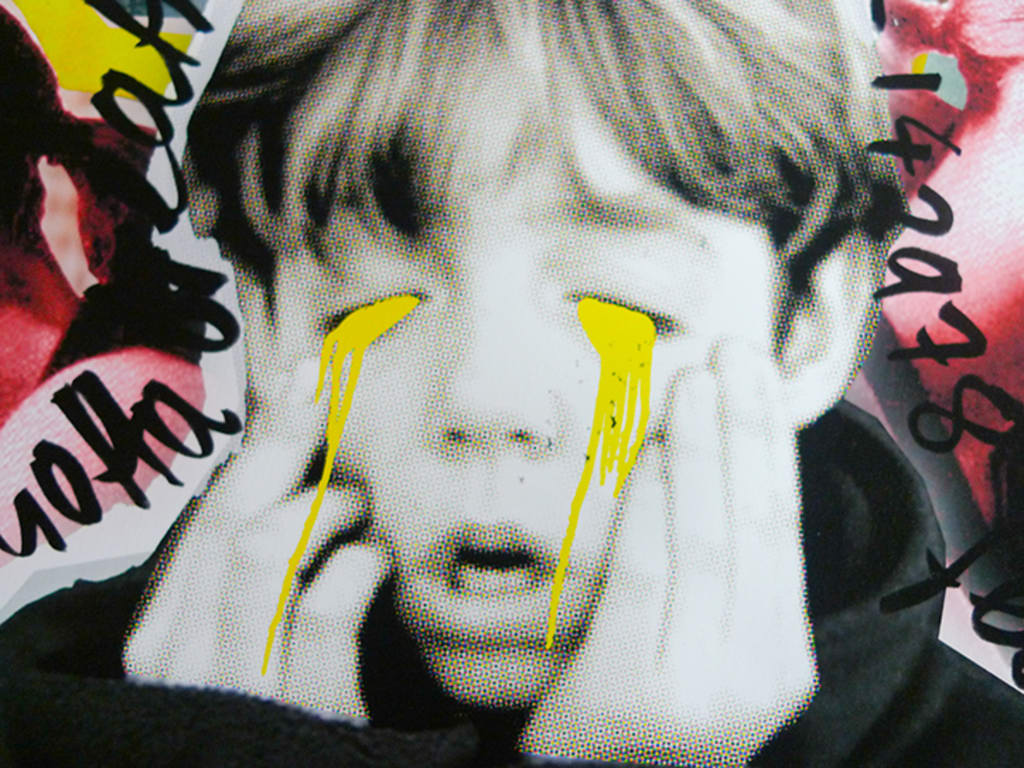Mental Health and Why You Don't Care
And Why You Should

Stuart Semple had a near-death experience at the age of 19 while studying fine-art; this led to severe PTSD and a debilitating anxiety disorder. And yet, he has gone on to have a successful artistic career spanning over 13 years with over 15 solo exhibitions.
In 2011 he became an ambassador for a mental health charity where he initiated a creative therapies fund and he regularly talks about mental health, helping to minimise the stigma. Semple is irrefutably an admirable man with mental and emotional achievements on his metaphorical CV that not many others can proclaim to have.
You may be able to read these words which summarise a person's mental health journey but comprehending the war that went on behind them - it requires that you have your own journey and your own taste of the mud that mucks up the mind. The struggle. The success, the scarring, the everything in between. Some people wouldn't have read the words at all, but skipped, simply disinterested in its content after the mention of mental health. Why? Why do people often not care for the conversations or information surrounding mental health?
'Circles of Empathy.'
According to one psychological analogy, these influence how much we care about a given topic or person. The innermost and smallest circle of the theory is usually self, then a bigger circle around that family and friends, then co-workers etc. If mental health issues do not enter your smaller circles of empathy where you experience the strongest attachments, you are less likely to be interested in the subject when it is exposed to you.
Within my sixth form, I gave out questionnaires to a large group of 16-18-year-olds to test this theory and to generally gain more insight into people's attitudes towards mental health. It was interesting to discover that only 3 in 20 people had no connection to mental health issues.
The same statistic skips mental health posts on social media when they arise and 1 in 10 people do not care for conversations involving the general topic of mental health. Furthermore, I found only 1 in 20 people believe mental health isn't important to think about and similarly the same number do not completely understand the concept of mental health.
In conclusion, those who had a connection to mental health issues (as opposed to those who didn't) generally completely understood the concept of mental health more, believing it important to think about, as well as caring more for social media posts and conversations about the topic. My research supports the circles of empathy theory.
Attitudes towards mental health have indubitably improved over the past few decades, but educating people on the causes and the possible explanations as to why many still do not care for the concept can trigger a wave of self-awareness, thus as a society we are continually improving our attitudes.
The reality of mental health is that 1 in 4 people will experience problems in any given year, therefore, it will most likely claim an impact on your life at some point. With more individuals aware and caring, more help and support can be readily given on large and small scales when it is required. Know that mental health matters.
Because 1 in 15 people have made a suicide attempt. Because mixed anxiety and depression is estimated to cause 1/5 of days lost from work in Britain. Because suicide is the most common cause of death for men aged 20-49 years old. Because of so many deeply saddening statistics. Know, that it is important.
And give a fuck.
About the Creator
iris georgie
just a kid who enjoys writing






Comments
There are no comments for this story
Be the first to respond and start the conversation.